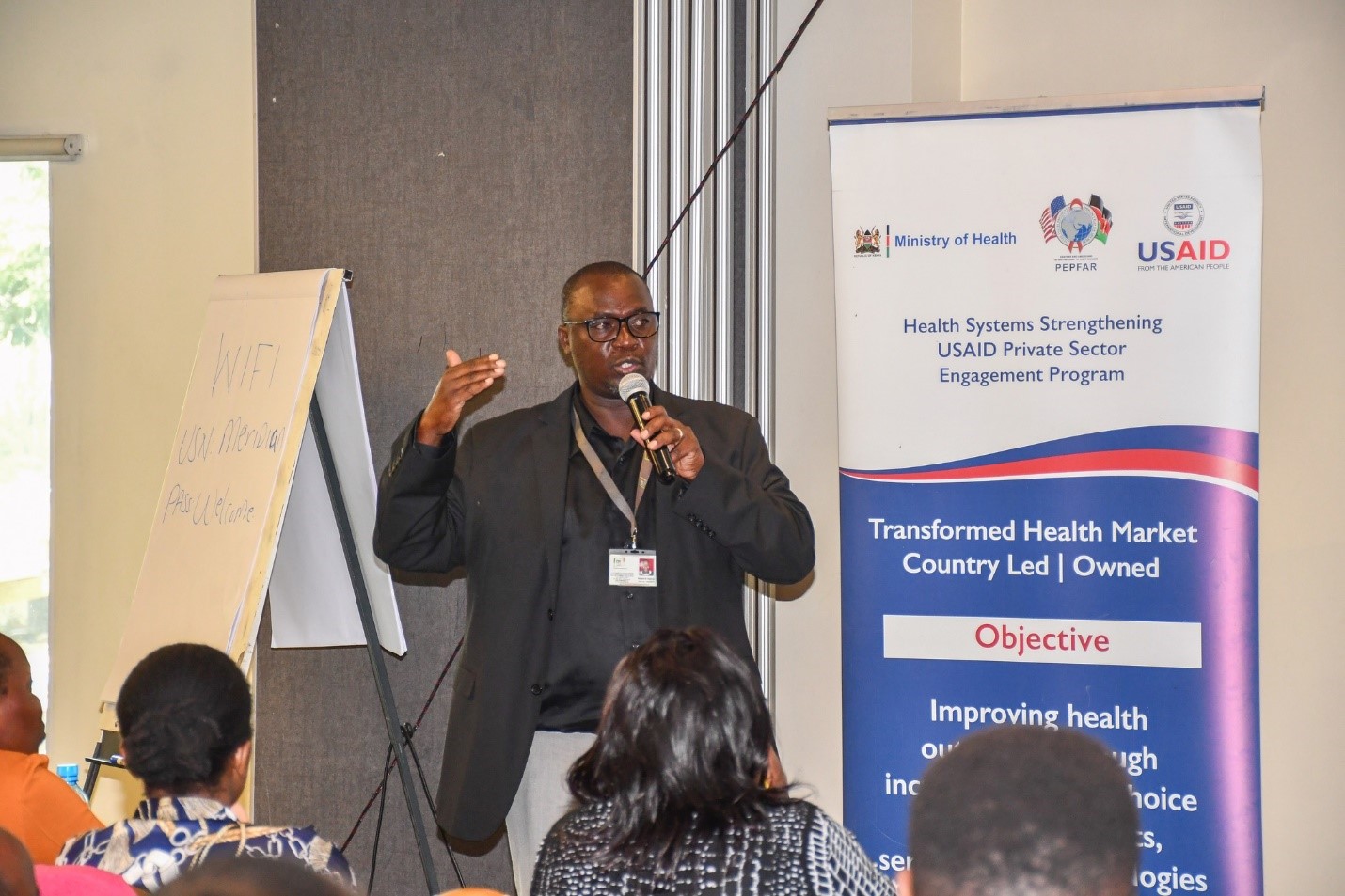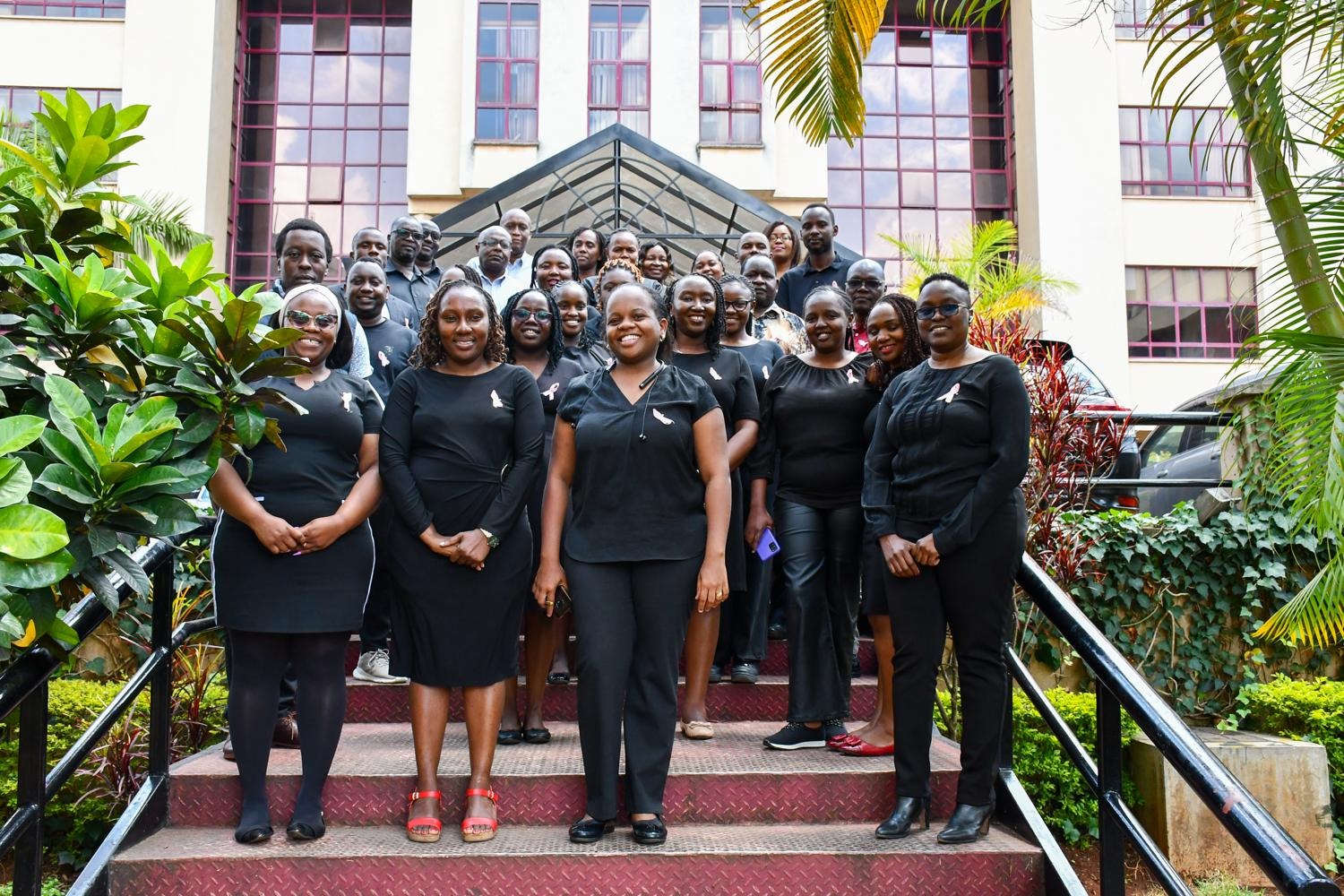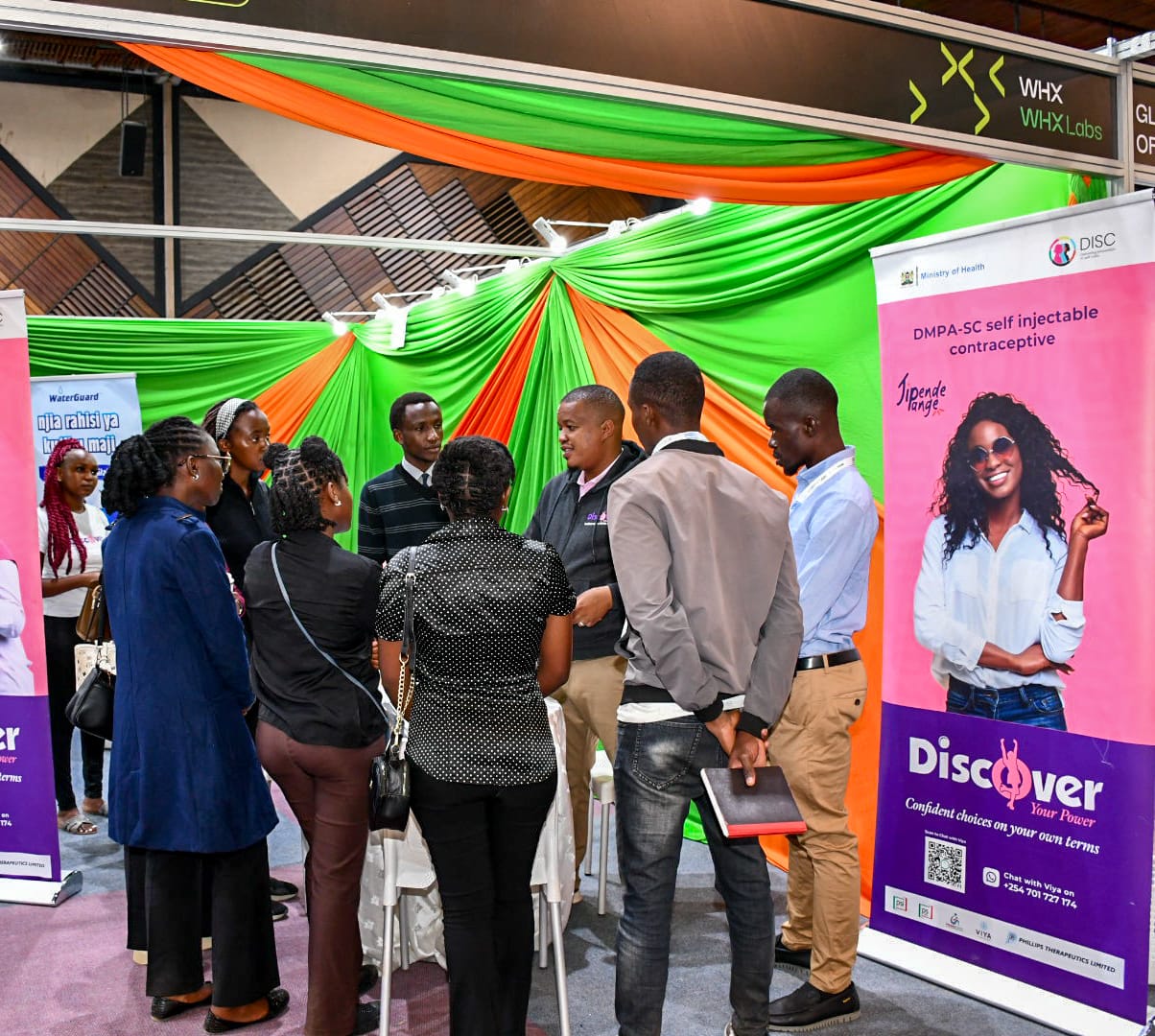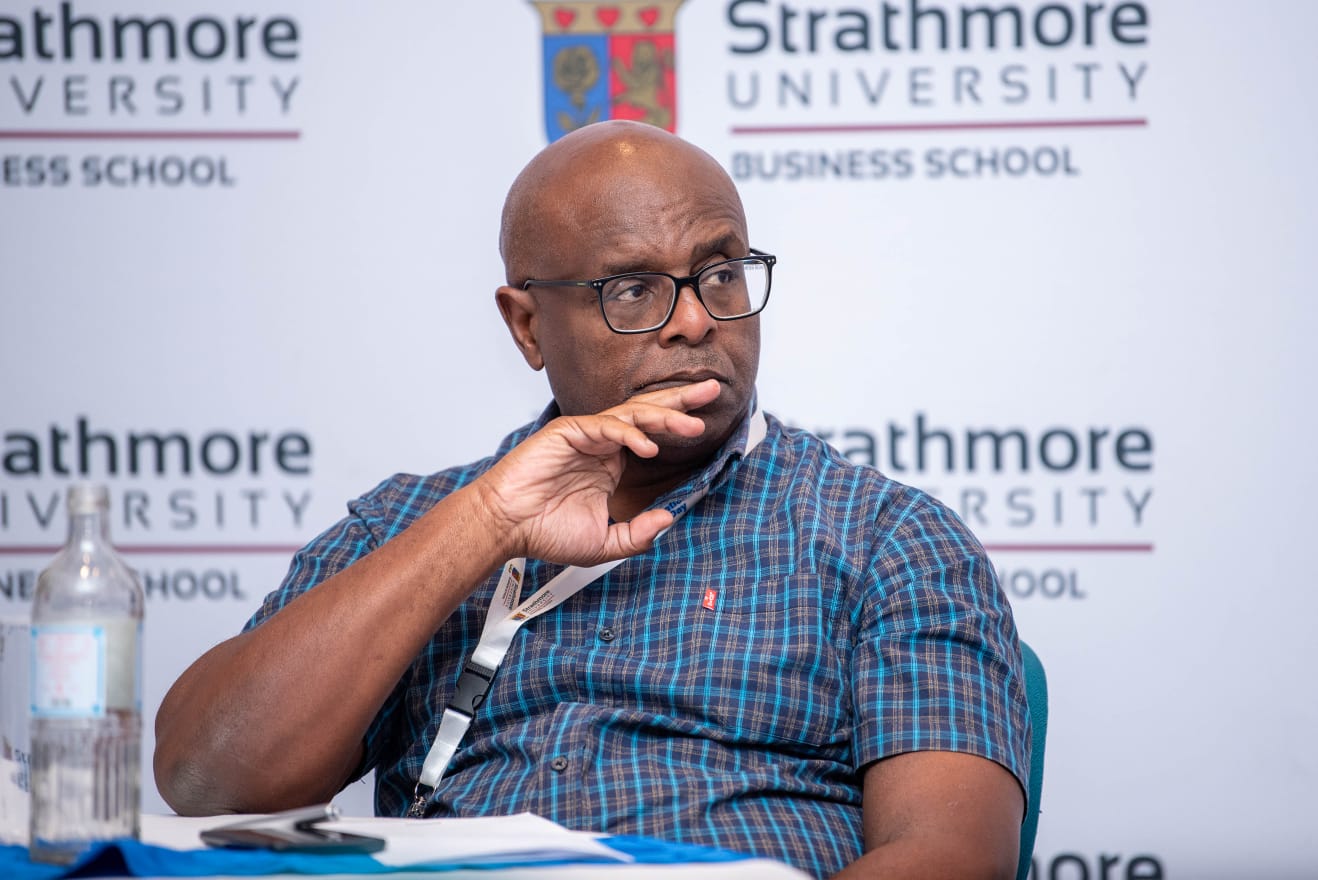On the 16th of January 2023, the USAID Private Sector Engagement program was represented by the Nairobi County Coordinator Robert Nyaroo, at a capacity building forum for healthcare workers within Embakasi East sub–county. The workshop brought together 80 representatives from the public and private sectors, as well as development and implementing partners and faith-based health facilities in the sub- county.
The purpose of the forum was to raise awareness among these stakeholders about their roles in the operationalization of Primary Care Networks (PCNs) and to provide them with orientation towards adopting the Primary Healthcare agenda in line with the national goals for Universal Health Coverage (UHC).

These PCNs are purposefully tailored to foster integration of care across levels of the health system and improve its efficiency by providing care at the optimal level and ensuring that no one is left out. Additionally, they are envisioned to create an efficient emergency referral system while improving sharing of resources across levels of care as well as improving data flow for better decision making.
The USAID Private Sector Engagement Program in a bid to see the robust implementation of UHC, works towards giving patients more options for high-quality medical supplies and services in the private sector, thus enhancing positive health comes.
It envisions a reformed health system provided by partnerships and owned by the nation, which maximize and increase private sector resources to provide more equitable, long-lasting and preventive rather than curative health solutions for Kenyans.
Robert Nyaroo during his presentation highlighted key support areas covered by the program in order to achieve the end which is in totality, sustainable options for the private sector, distribution of health products and services identified and tested which will have a ripple effect, a shift, and in this case from the conventional curative healthcare system to preventive healthcare which is more efficient and sustainable.
He says, “The PSE program is committed to boost engagement with the county government as well as the social groups in order to ensure that all are equipped to see to it that access health solutions are made both affordable and easily accessible.”
This he remarked noting that such trainings go along away in ensuring that healthcare providers are sufficiently equipped in service delivery making it a cakewalk to access health solutions which has been a persistent obstacle in the realization of quality health in the region.
PS Kenya, in partnership with USAID through this program, has hit where it hurts the most, pulling out the thorn from the flesh, providing solutions that have been sought for, for decades now without avail. This tangible impact has been felt, pointing to a shift in the healthcare landscape a promise to better health and wellbeing.
In conclusion, the programs impact is measured not just in terms of better health outcomes but also in terms of community empowerment, resource optimization, and the development of a long-term framework for healthcare delivery. By leveraging on strategic partnerships and collaborations the program has been able to establish its commitment to expanding the canvas of medical options in the country.



